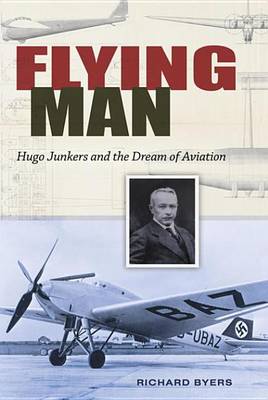Centennial of Flight
1 total work
Hugo Junkers (1859-1935) was a German engineer and aircraft designer generally credited as the pioneer of all-metal airplanes. His company, Junkers Flugzeug- und Motorenwerke AG, more commonly referred to simply as "Junkers," became a major German aircraft manufacturer based in Dessau. From humble beginnings producing boilers and radiators, by World War II the company was producing some of the most successful Luftwaffe planes, including the Ju 88, the primary bomber of the German air force.
Hugo Junkers himself, however, was a socialist pacifist who saw aviation as a way to unify the world. Soon aft er the Nazi party came to power in 1933, Junkers was forced to surrender his patents, found his holdings seized by the state, and was placed under house arrest. He died in 1935, a "tortured genius" exiled from his life's work but, perhaps fortunately, spared from seeing his inventions destructively unleashed across Europe.
No biography of Junkers has been published to date. Author Richard Byers now fills that void with this compelling narrative of a man and his machines. Flying Man is a contribution not only to the history of aviation but also adds to our understanding of the consolidation of power in Germany's march toward World War II.
Hugo Junkers himself, however, was a socialist pacifist who saw aviation as a way to unify the world. Soon aft er the Nazi party came to power in 1933, Junkers was forced to surrender his patents, found his holdings seized by the state, and was placed under house arrest. He died in 1935, a "tortured genius" exiled from his life's work but, perhaps fortunately, spared from seeing his inventions destructively unleashed across Europe.
No biography of Junkers has been published to date. Author Richard Byers now fills that void with this compelling narrative of a man and his machines. Flying Man is a contribution not only to the history of aviation but also adds to our understanding of the consolidation of power in Germany's march toward World War II.
